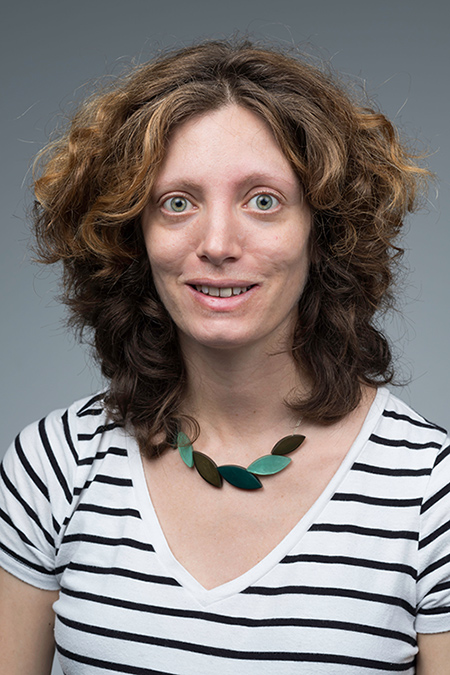Two faculty members received Sloan Awards for research on how the brain perceives the world.

Martina Poletti. (University of Rochester photo / J. Adam Fenster)

Emanuel Gomez-Ramirez. (University of Rochester photo / J. Adam Fenster)
Two University of Rochester researchers in the Department of Brain and Cognitive Sciences are being honored with a celebrated award for their contributions to and leadership in the scientific community.
Martina Poletti and Manuel Gomez-Ramirez, both assistant professors of brain and cognitive sciences and of neuroscience, are among this year's recipients of Sloan Research Fellowships. Awarded annually by the Alfred P. Sloan Foundation since 1955, the fellowships recognize young scientists for their independent research accomplishments, creativity, and potential to become leaders in the scientific community. Each fellowship carries a $75,000, two-year award. This year, 128 scientists across the US and Canada were awarded fellowships. Gomez-Ramirez and Poletti are the University's fourth and filth Sloan fellows in the last three years.
Poletti, together with Michele Rucci, professor of brain and cognitive sciences, runs the Active Perception Lab in the Department of Brain and Cognitive Sciences. Her research focuses on how humans perceive the world by taking in visual information through a combination of sensory processing, motor behavior, and attention. In particular, she studies the foveola-a small region of the retina that is essential for high-resolution vision-and how the foveola works in tandem with microscopic eye movements and attention to enable vision.
"Martina has made critical discoveries that have led to a complete change in how we think about fixational eye movements and the function of the fovea," says Duje Tadin, professor and chair of the Department of Brain and Cognitive Sciences. "Her recent work has made major advances linking fixational eye movements-seemingly among the lowest levels of visual function-to higher aspects of visual functioning, including attention, visual exploration, and task-relevance."
Poletti joined the Rochester faculty in 2017, after serving as a research assistant professor at Boston University. She received her PhD in cognitive and neural systems from Boston University in 2010.
Gomez-Ramirez leads the Haptic Perception Lab in the Department of Brain and Cognitive Sciences. His research focuses on the mechanisms that enable our hands to perceive, grab, and manipulate objects. The research is important in optimizing brain-computer interfaces and developing neuroprosthetics that integrate brain signals with prosthetic devices in order to control the devices.
"This is a challenging area to study as it often involves difficult experiments, but Manny recognizes its importance as a great model of how the brain combines information from multiple sources-a fundamental question in neuroscience," Tadin says.
Gomez-Ramirez joined the Rochester faculty in 2019 after serving as a research associate at Brown University and a postdoctoral research associate at Johns Hopkins University. He received his PhD in psychology from the City University of New York in 2009.






